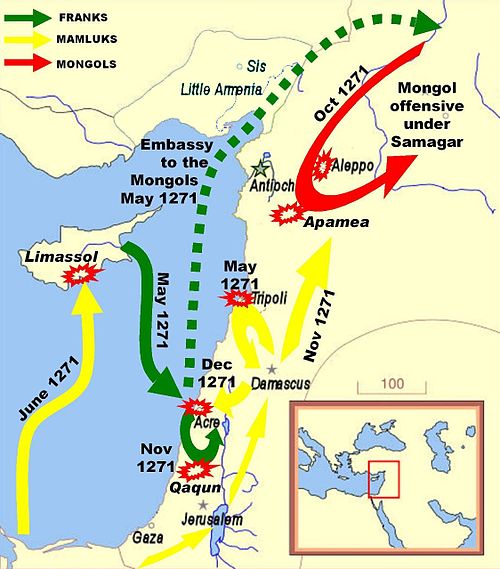Year 1271: Historical Events and Notable Highlights
The year 1271 (MCCLXXI) was a common year beginning on Thursday of the Julian calendar.
Key Events by Place
Europe
On July 2, the Peace of Pressburg was signed between King Ottokar II and Stephen V, resolving territorial disputes after Ottokar’s failed invasion of Hungary in April. The agreement involved Stephen agreeing not to support Ottokar’s opponents in Carinthia and Ottokar renouncing his claims to castles in Hungary.
The 17-year-old Marco Polo departed from Venice with his father and uncle, Niccolò and Maffeo Polo, beginning their journey to meet Kublai Khan, the Mongolian emperor, at his court in Beijing.
On August 21, the counties of Poitou and Toulouse were integrated into the French domains following the death of Alphonse, Count of Poitiers, the son of the late King Louis VIII.
Construction of the Tower of Kamyenyets (also known as the White Tower) in Belarus commenced, marking the beginning of a significant frontier stronghold.
Levant
In February, Mamluk forces led by Sultan Baibars advanced in western Syria and besieged Safita Castle, which was defended by the Knights Templar. Following a valiant defense, the garrison surrendered under Grand Master Thomas Bérard.
On April 8, the siege of Krak des Chevaliers resulted in its capture by the Mamluks. The defenders, under the purported orders of Grand Master Hugues de Revel, retreated to Tripoli after being granted safe conduct.
During May and June, Baibars attempted unsuccessful campaigns against Tripoli and a naval invasion of Cyprus.
On May 9, Prince Edward of England and King Charles I of Anjou arrived in Acre with a fleet to initiate a crusade against Baibars. The endeavor ultimately ended without territorial gains, leading to a peace agreement with the Mamluks.
In October, Abaqa Khan, of the Ilkhanate, dispatched 10,000 horsemen to support Lord Edward against Baibars, achieving victories in the region around Aleppo.
Asia
On September 12, Nichiren, a Japanese Buddhist priest, was arrested, nearly facing execution. This event is considered a pivotal moment in the evolution of Nichiren Buddhism.
On December 18, Kublai Khan officially renamed his empire to Great Yuan, signaling the establishment of the Yuan dynasty in China.
Significant Births
- March 13 – Judith of Habsburg, queen consort of Bohemia (d. 1297)
- March 14 – Stephen I, German nobleman and regent (d. 1310)
- May 25 – Shah Jalal, Indian Sufi leader (d. 1346)
- June 20 – John de Ferrers, English nobleman (d. 1312)
- September 8 – Charles Martel, king of Hungary (d. 1295)
- September 27 – Wenceslaus II, king of Poland (d. 1305)
- November 2 – Gong of Song, Chinese emperor (d. 1323)
- November 5 – Mahmud Ghazan, Mongol ruler (d. 1304)
Notable Deaths
- January 17 – Joan, Countess of Chiny (b. 1205)
- January 28 – Isabella of Aragon, queen consort of France (b. 1248)
- March 13 – Henry of Almain (b. 1235)
- August 21 – Alphonse, Count of Poitiers (b. 1220)
- October 19 – Philip Basset, English chief justiciar (b. 1185)
Religious Developments
On September 1, Pope Gregory X succeeded the late Clement IV as the 184th pope, marking the end of a lengthy three-year conclave.

